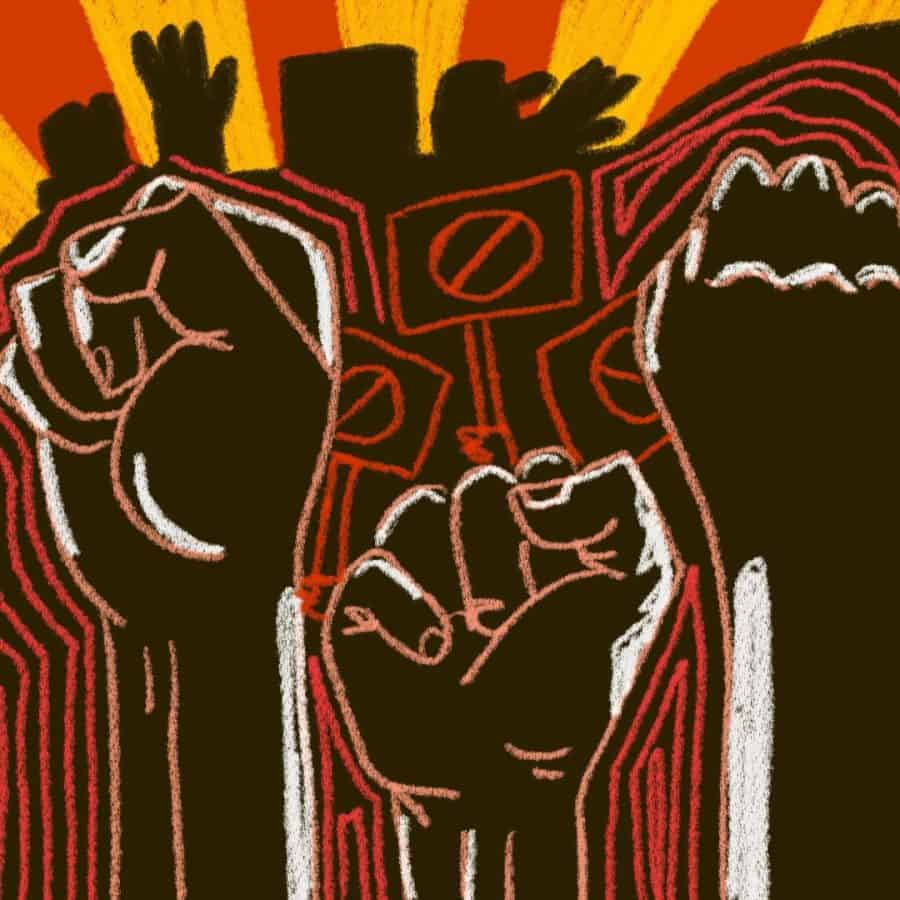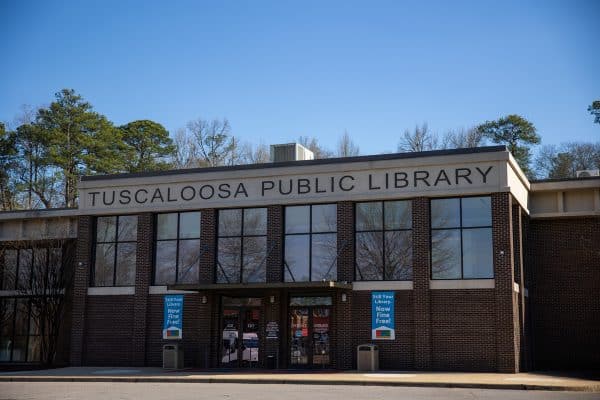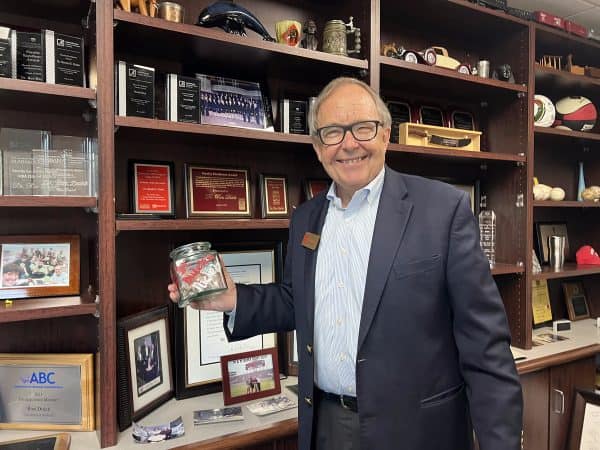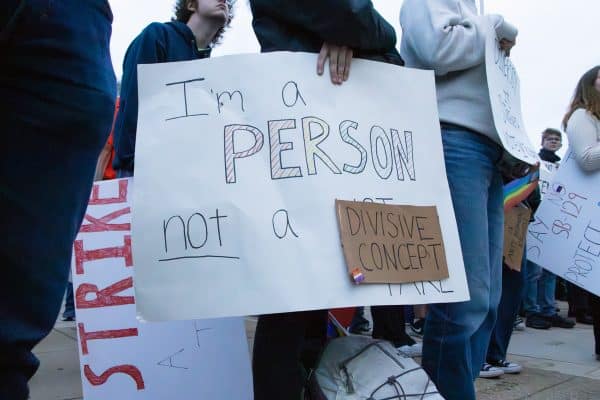Opinion | You and Alabama both need unions
February 8, 2023
Less than a 40-minute drive from Tuscaloosa, almost 700 coal miners have now been on strike for 679 days.
Members of United Mine Workers of America District 20 work in mines operated by Warrior Met Coal, which acquired the mines in 2015 after the previous owner went bankrupt. The miners accepted drastic 20% cuts to their pay and reduced benefits to keep the mine running.
When these concession contracts expired in 2021, Warrior Met repeatedly refused to restore the lost compensation. In response, workers voted to start striking on Aug. 1, 2021. UMWA established a strike fund for the miners, attracting donations from Walmart workers, other unions and sympathetic individuals from across the country.
I went to the District 20 headquarters to talk to union vice president Larry Spencer about the strike and the labor movement. The headquarters, in a vaguely conical building just off Highway 216, were marked by a sign in the shape of the UMWA logo. Stacks of flyers and protest signs peppered the inside.
Spencer started working in the coal industry in 1980 and was first elected as a UMWA district representative in 2005; he’s been international District 20 vice president since 2016.
“[The workers] have been on strike for twenty-one months, and they’re tired. Everybody is. We’re tired; we’re ready to get this settled. But they don’t want to go back without some sort of reasonable contract,” Spencer said.
And so far, a reasonable contract has not been forthcoming.
Instead of coming to the bargaining table in a spirit of compromise, Warrior Met employees have been accused of vehicular assault against people picketing. Spencer described recent incidents where people associated with Warrior Met were “throwing out nails and stuff where [striking miners] park [their] cars.”
Since 1935, the rights of both union members and workers trying to unionize have been protected under the National Labor Relations Act, one of the New Deal’s pro-worker policies. The NLRA also created a new government agency, the National Labor Relations Board, to mediate negotiations between unions and employers and handle accusations of unfair labor practices.
Siding with Warrior Met, the NLRB “hit [the UMWA] with a $13.5 million settlement” last year, eventually whittled down to only $400,000 following a successful legal challenge. Spencer doesn’t think the NLRB has been very fair thus far, but still remains cautiously optimistic about cases yet to be heard.
Spencer was also critical of anti-union hostility from local government, only pointing out that state Sen. Greg Reed (R-Jasper) and state Rep. Kyle South (R-Fayette) were particularly supportive. It’s hard for him to understand why “the state government has an anti-union agenda” when “America was built off the back of union members.”
Unions have been making headlines a lot recently. Starbucks, Trader Joe’s and Amazon have all had underdog union victories. Strikes and threats thereof at prestigious universities won workers sizable pay hikes.
“People across the country are looking at the fact that corporate people are trying to, I guess, take advantage of the workers,” Spencer posited.
Workers are seeing employers like Warrior Met reporting record profits while slashing salaries and deciding to fight for their rights.
The University of Alabama has its own unionization effort going on right now, led by the United Campus Workers of Alabama. You’ve probably seen one of their red-and-yellow posters around campus.
Peter Edgar, an English graduate student involved with UCW, talked with me about why he finds unions so important. He “found out about the union by word-of-mouth” a couple years before he formally joined and has been helping out with UCW’s efforts since then.
Edgar said that the role of solidarity in “being a good citizen” has been forgotten, but unions act as realizations of workplace solidarity. To live in a kind and just society, we need to institutionalize our natural “impulse to lift up our fellow neighbors and stand for their good, even when we’re well off.”
Edgar makes sure to stress that “unions are not political parties,” stating that “the issues workers face affect conservatives and liberals equally.” An average pay increase of more than 12% from joining a union is great regardless of your political persuasion.
Workers in Alabama and here on campus deserve more than a simple “thank you” for the vital work they do. They deserve the higher salaries, safer working conditions and greater dignity that unions win for their members.
Alabama is not a state historically kind to unions. In 1908, Governor Braxton Bragg Comer, B.B. Comer Hall’s namesake, had the National Guard violently quell a coal miners’ strike. Responding to black workers’ organizing, Governor Comer said Alabama “could not allow it [during Reconstruction] and will not allow it now.”
In 1920, Governor Thomas E. Kilby, rosily dubbed a “business leader [and] humanitarian” by UA’s Alabama Business Hall of Fame, continued this state tradition of using the National Guard against striking miners. National Guardsmen ruthlessly evicted strikers and viciously lynched a man named William Baird. Former Governor Comer donated to the lynchers’ legal fund.
This anti-union sentiment in Alabama has largely persisted: Governor Ivey is incredibly critical of policies promoting union labor. Unions are democratic expressions of the best parts of Southern culture, empathy and kindness. A more unionized Alabama would be an Alabama with higher paying jobs and better working conditions, an Alabama with more representation for working families and less representation for living incarnations of Mammon.
We should all take to heart this exhortation from Martin Luther King Jr.’s final speech, given to endorse striking sanitation workers: “Let us rise up tonight with a greater readiness. Let us stand with a greater determination. And let us move on in these powerful days, these days of challenge to make America what it ought to be. We have an opportunity to make America a better nation.”
If you find yourself in the Brookwood area, Spencer invites you to “come out and walk on the picket line.” UMWA’s strike fund is still accepting donations. To get UA employees affordable healthcare, United Campus Workers needs your signature, and if you’re a university employee, please consider joining. Help make Alabama a state that listens to all of its residents.











